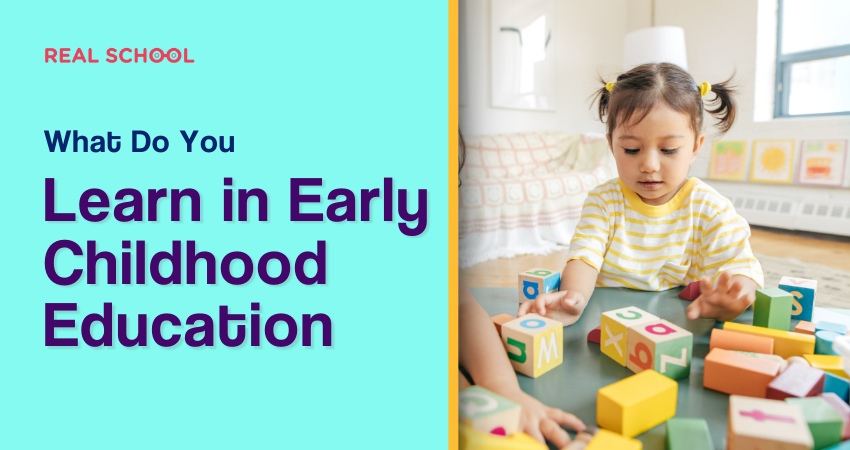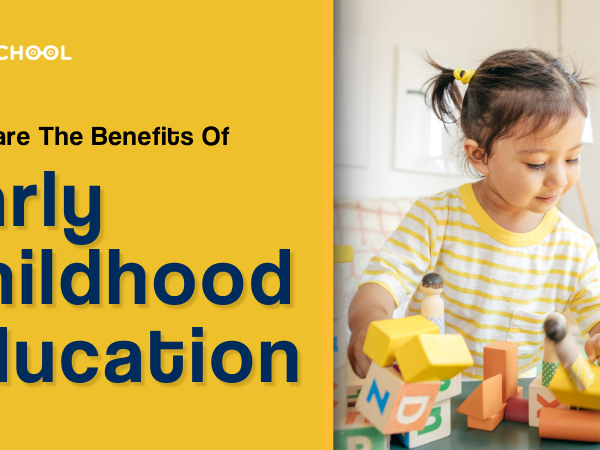Early childhood education plays a pivotal role in shaping the foundation of a child’s learning journey. It’s a dynamic and comprehensive field that goes far beyond basic ABCs and 123s. In this article, we will explore what children learn in early childhood education and how these lessons prepare them for a lifetime of learning and growth.
Holistic Development – Early Childhood Education
Early childhood education isn’t solely about academics; it focuses on holistic development, encompassing cognitive, social, emotional, and physical aspects of a child’s growth. Let’s delve into what children can expect to learn during this crucial stage of their lives.
Language and Communication – Early Childhood Education
Vocabulary and Language Skills
Early childhood education helps children expand their vocabulary and develop strong language skills. Through storytelling, group discussions, and interactive activities, they learn to express themselves effectively.
Reading Readiness
Children are introduced to the world of books and reading, fostering a love for literature and preparing them for future literacy.
Numeracy and Problem-Solving – Early Childhood Education
Basic Math Concepts
Early childhood education introduces fundamental math concepts through hands-on activities, such as counting, sorting, and measuring.
Critical Thinking
Children are encouraged to think critically and solve problems independently. They learn to approach challenges with curiosity and creativity.
Social Skills – Early Childhood Education
Social Interaction
Early education environments provide opportunities for children to interact with peers, helping them develop essential social skills like sharing, cooperation, and empathy.
Conflict Resolution
Children learn how to resolve conflicts peacefully and communicate their feelings and needs effectively.
Emotional Development – Early Childhood Education
Emotional Expression
Early childhood education fosters emotional intelligence, allowing children to recognize and express their emotions in healthy ways.
Self-Regulation
Children develop self-regulation skills, helping them manage their emotions and cope with stress.
Also Read: How To Prepare Yourself For Homeschooling?
Physical Development – Early Childhood Education
Fine and Gross Motor Skills
Early education incorporates activities that enhance fine and gross motor skills, such as drawing, running, and playing sports.
Healthy Habits
Children are taught the importance of a healthy lifestyle, including proper nutrition and exercise.
Conclusion
Early childhood education is a multifaceted journey where children not only learn the building blocks of academics but also develop crucial life skills. From language and math to social and emotional intelligence, the lessons acquired during this period are the stepping stones to a successful and fulfilling future. Know more – The Real School
FAQs
1. At what age does early childhood education typically begin?
Ans: Early childhood education often starts around the age of three, although some programs cater to children as young as infants.
2. Is early childhood education only for academic preparation?
Ans: No, early childhood education focuses on overall development, including academics, social skills, emotional intelligence, and physical well-being.
3. How can parents support their child’s early childhood education at home?
Ans: Parents can support their child’s education by reading together, engaging in creative activities, and fostering open communication.
4. What are the benefits of early childhood education for a child’s future?
Ans: Early childhood education has been linked to improved academic performance, enhanced social skills, and greater career opportunities in later life.
5. Are there different approaches to early childhood education, and how do they vary?
Ans: Yes, various approaches exist, such as Montessori, Waldorf, and play-based programs. These approaches differ in their teaching methods and philosophies, allowing parents to choose the one that aligns with their values and goals for their child’s education.







